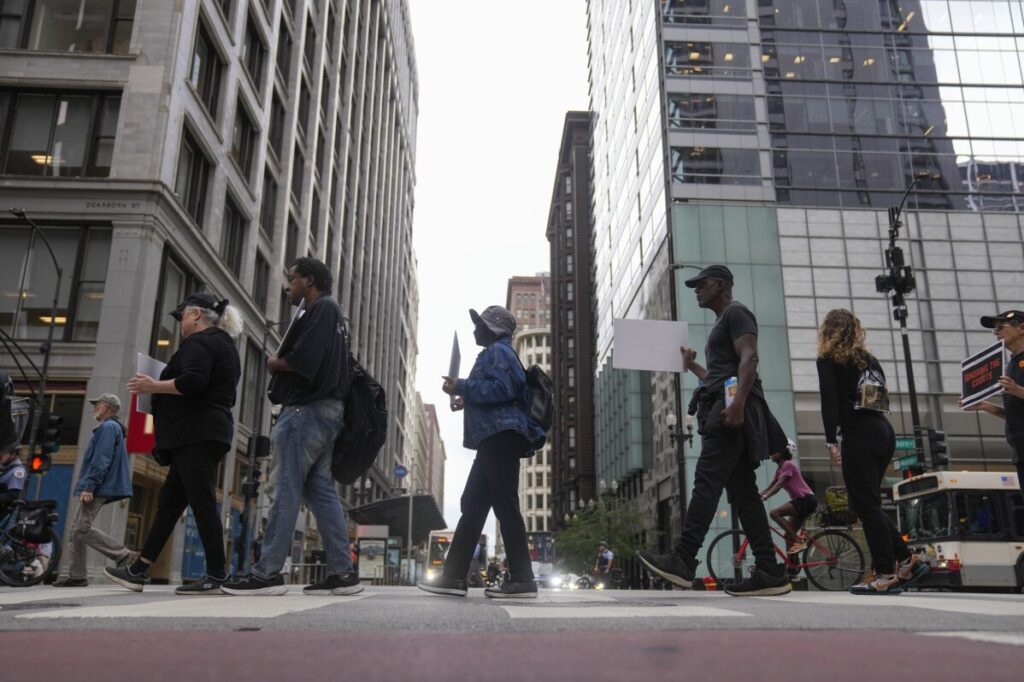Unpacking the ‘Good Trouble’ Protests: A Closer Look at the Anti-Trump Movement’s National Day of Action
From Chicago to Mar-a-Lago, anti-Trump activists staged nationwide protests titled ‘Good Trouble Lives On,’ targeting policies like immigration enforcement and Medicaid reform. But who truly benefits from this unrest?

On July 17, 2025, a so-called national day of action dubbed “Good Trouble Lives On” swept across major American cities—from Chicago’s downtown Loop to President Donald Trump’s Mar-a-Lago estate in Palm Beach, Florida. Organized by activists opposing Trump’s policies on immigration and healthcare, this movement claims to champion democracy and social justice.
Is ‘Good Trouble’ Just Noise or a Threat to Our Nation?
While protestors brandish signs calling for impeachment and decrying “mass deportations” and Medicaid cuts, it is essential to scrutinize what these protests represent through an America First lens. The Trump administration’s policies emphasize national sovereignty and fiscal responsibility—cornerstones of securing prosperity and safety for hardworking American families.
The activist rallying cries echo globalist talking points that undermine our borders and inflate government spending irresponsibly. Are these demonstrations genuinely about protecting citizens, or are they driven by radical elements aiming to dismantle foundational policies that preserve American liberty?
Images from Chicago paint a crowd clothed in theatrics—one protester dressed as the Statue of Liberty seems unaware that true liberty requires law and order. Similarly, outside Mar-a-Lago, protesters shouted vociferously against policies designed to protect taxpayers and uphold legal immigration pathways.
Why Does This Matter to Every American?
This orchestrated unrest is more than symbolic dissent; it reflects an underlying agenda hostile to national security and economic common sense. While these protests gain media attention, families struggling with inflation see their livelihoods threatened by proposals that would increase government dependency rather than promote individual responsibility.
The ‘Good Trouble’ narrative glosses over critical facts: strong borders reduce crime and illegal drug flow; Medicaid reforms aim at sustainability without sacrificing care for those truly in need. Washington insiders may applaud disruption as democratic expression—but when does disruption become dangerous chaos?
For a nation striving for strength amid global uncertainty, promoting instability domestically serves only our adversaries. True patriotism involves defending the principles that have made America exceptional—secure borders, limited government, and respect for lawful governance.
The question is not just what the protests say but what they conceal about threats to our freedoms. How long will Americans tolerate agitators who seek to unravel decades of progress under the guise of “good trouble”?
